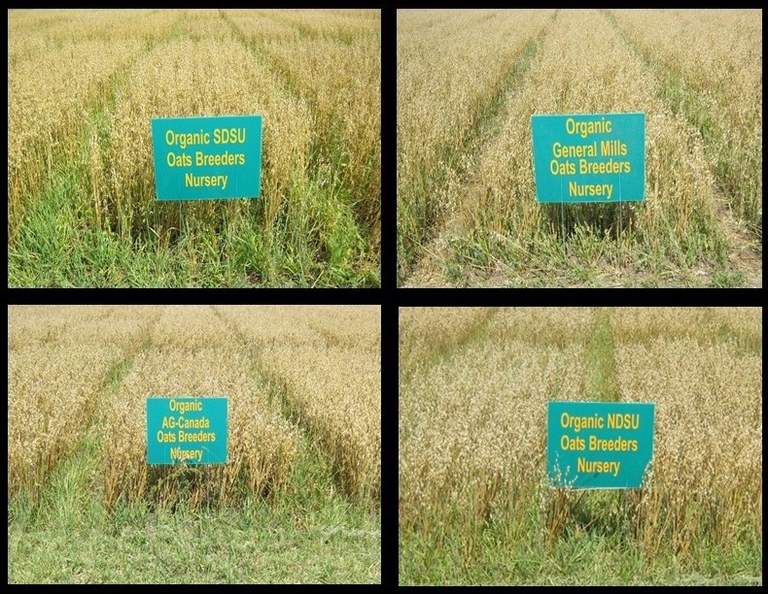Organic Oat Variety Evaluation and Development
Organic agriculture poses unique challenges for the organic farmer with some of the challenges being the availability of certified organic seed or seed developed in certified organic fields. A finding from the State of Organic Seed 2016 by the Organic Seed Alliance (OSA) illustrate that “more farmers believe organic seed is important to the integrity of organic food production and that varieties bred for organic production are important to the overall success of organic agriculture.” Surveys from OSA also illustrate the use of certified organic seed by certified organic farmers tends to be low with percent usage varying by crop type. Results demonstrate that farmers are attempting to source more organic seed. Although the use of organic seed is increasing, there are a number of reasons why organic farmers are not using organic seed: variety choice, insufficient quantities, lack of desirable traits, and price. Overall, the organic seed supply is not keeping up with the growth in organic sales with organic farmers still relying on conventionally produced seed.
The USDA’s National Organic Policy (NOP) requires the use of organic seed when commercially available. When the NOP began, the organic seed sector barely existed. Currently there are few public and private breeding programs focusing on the development of organic seed. A basic principle in plant breeding is that to “breed and select in the environment of intended use,” and for organic agriculture, that means selection and development in certified organic fields.
One of the main efforts with organic research at the CREC has been varietal evaluations across a number of field crops to provide information on the best varieties for organic farmers to plant. Lately we have begun evaluating early generation nurseries from a number of plant breeders in the region to aid in organic variety development.
This past year we partnered with a number of plant breeders, both private and university, to evaluate experimental oat nurseries on the CREC organic plot ground. We are cooperating with Dr. Mike McMullen (NDSU), Dr. Melanie Caffe-Treml (SDSU), Dr. Jennifer Mitchell Fetch (retired) and Dr. Kirby Nilsen (Agriculture and Agri-Food Canada), and Mr. Paul Richter (General Mills).
The breeding programs at SDSU and Agriculture and Agri-Food Canada focus on developing varieties in both organic and conventional environments. Examples of released varieties from these two breeding programs for organic agriculture are AAC Kongsore and Oravena from Agriculture and Agri-Food Canada and Sumo from SDSU. The breeding programs at NDSU and General Mills currently are not specifically breeding for organic while they are looking more at cultivars that perform well in both conventional and organic environments.

Results from these nurseries are generally not available to the public with the exception of check varieties. Check varieties are used for comparison purposes by the plant breeders to determine what experimental lines they will include in advanced trials.
Steve Zwinger
Steve.Zwinger@ndsu.edu
Agronomy Research Specialist


